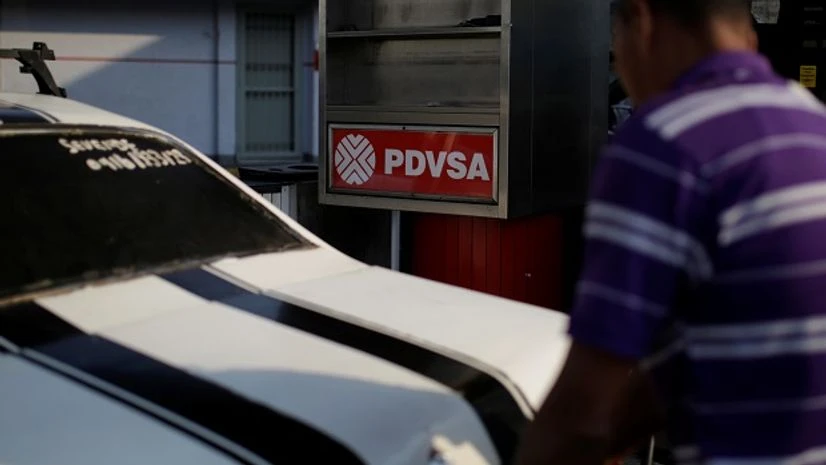Cash-hungry Venezuela has offered Indian oil company Oil and Natural Gas Corporation (ONGC) Videsh an increased stake in an oil field, according to two sources close to the proposal, as the country seeks to shore up its bruised energy industry and strengthen ties with New Delhi.
State oil firm Petroleos de Venezuela SA (PDVSA) has proposed selling a 9 percent stake in the San Cristobal field to ONGC Videsh (OVL), a subsidiary of India's state-owned top explorer ONGC
ONGC Videsh already holds a 40 per cent stake in the field, which produces around 22,000-23,000 barrels per day (bpd) of oil. While the amount of the sale would be relatively modest, according to analysts, any extra income would be welcome for PDVSA.
Venezuela, struggling under triple-digit inflation and Soviet-style product shortages as its socialist economy unravels, has been hit hard by the falling price of oil, its economic lifeline.
The Organisation of the Petroleum Exporting Countries (Opec) nation's oil output has slipped and PDVSA
The state company already offered Russian oil major Rosneft
More From This Section
The sources, who asked to remain anonymous because they are not authorised to speak about the negotiations, said PDVSA was still negotiating with ONGC and no deal was certain.
Under Venezuela's hydrocarbon law, the state must maintain more than 50 per cent of all oil ventures, hence PDVSA can only offer up to 9 per cent to the Indian firm.
"ONGC is still evaluating the options," one of the sources said, adding the purchase could be challenging given the Indian company's revenues are suffering due to lower oil prices.
ONGC Videsh Managing Director N K Verma declined to comment. PDVSA did not immediately respond to a request for comment.
Legal quandary
Another potential complication is Venezuela's murky legal framework during a power struggle between the opposition and the unpopular leftist government of President Nicolas Maduro.
A controversial decision by the Supreme Court in April gave the government the right to cut oil deals but the constitution mandates that the National Assembly, controlled by the opposition, must approve contracts of "national public interest."
Opposition lawmakers say oil deals which bypass the legislature are therefore null. They have been warning foreign companies away from what they say are firesale deals that throw a lifeline to Maduro's government.
"Any change to the shareholding structure of a joint venture should be approved by (Congress)," wrote Jose Guerra, president of the congressional finance committee, in a message to Reuters.
Asked if such a change would be approved by the legislature, he responded "I don't think so. The government has refused to present those issues to (Congress)."
The business climate remains poor in the volatile and violent South American country, which is labouring under shortages of food and medicine. More than three months of protests have left at least 90 people dead.
Recent comments by a Socialist Party candidate about a new legislative superbody created by Maduro have also spooked some in the oil sector. Hermann Escarra, a constitutional lawyer, suggested during a speech at PDVSA that the future constituent assembly could rewrite parts of the constitution that allow joint ventures with foreign oil companies.
Still, as Maduro's government has no easy sources of financing beyond the oil sector, foreign oil companies stand to get a good price for assets on sale.
The second source said there was no clear figure for the potential deal, although a decision was expected this year.
Although it is tricky to estimate a price without full details, a 9 percent stake in San Cristobal could be worth $50 million to $100 million, estimated Luisa Palacios, senior managing director at Medley Global Advisors. She based her estimate on Rosneft paying $500 million to raise its stake in the Petromonagas joint venture last year.
The number is likely to be on the lower end of that range due to Venezuela's political turbulence and business climate, she added.
Boost to bilateral relations?
The potential deal could also help once closer relations between Caracas and New Delhi that have taken a hit as Venezuela's economy unravelled.
PDVSA spent at least a decade trying to build business ties and boost shipments to refineries in India.
But the Caracas-based company was forced to abandon the fight for coveted market share there because of its declining output and heavy obligations under oil-for-loan deals with China and Russia, a Reuters analysis showed in March.
Changing trade routes, triggered by rising shale oil production in the United States, turned New Delhi to cheaper oil from Africa and the Middle East.
Venezuela's downward spiral also hurt Indian oil companies, which are owed late dividends.
There are signs the situation may be improving, however.
After years of negotiations, PDVSA last year agreed to clear a pending dividend of $540 million on ONGC Videsh's investment in San Cristobal.
In return, the first source said, ONGC Videsh was now aiming to arrange a $325 million loan for development of the block this year.

)
